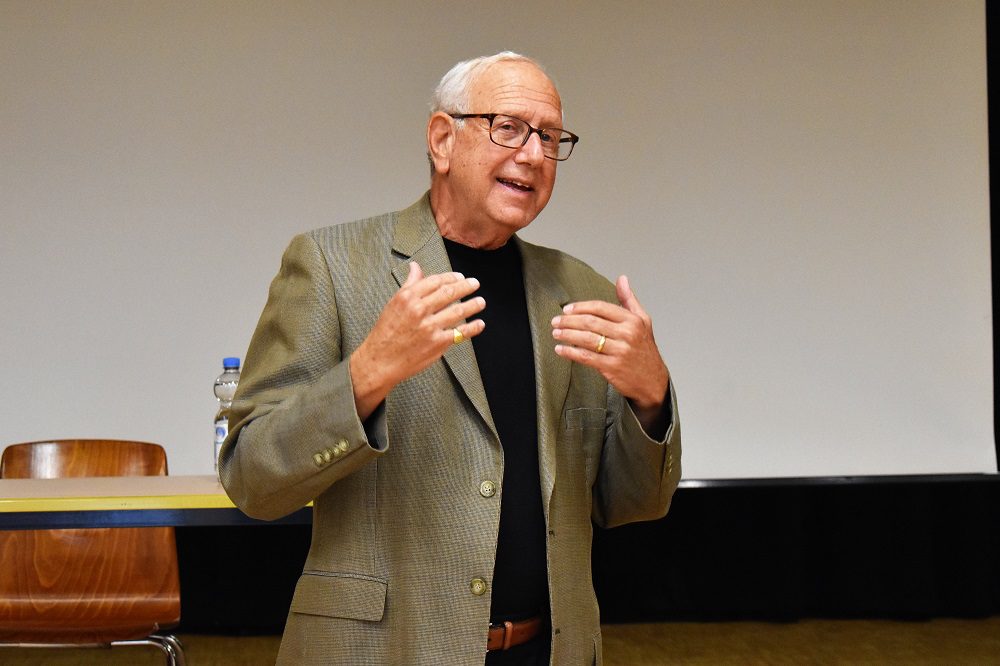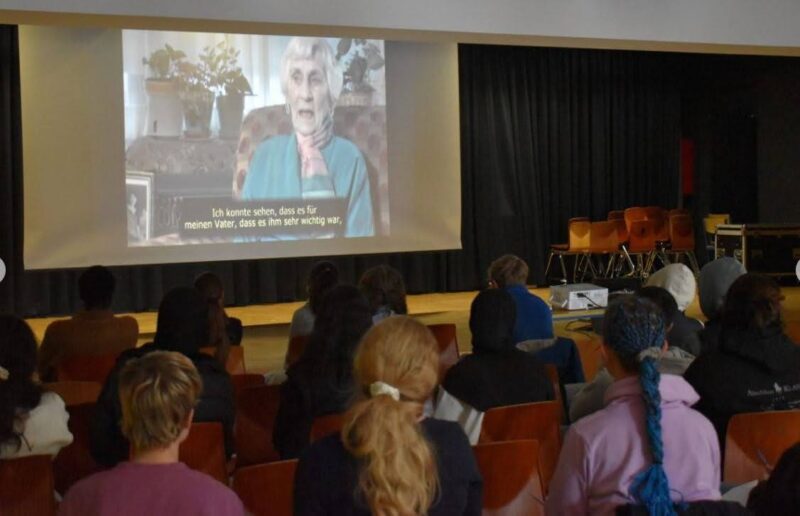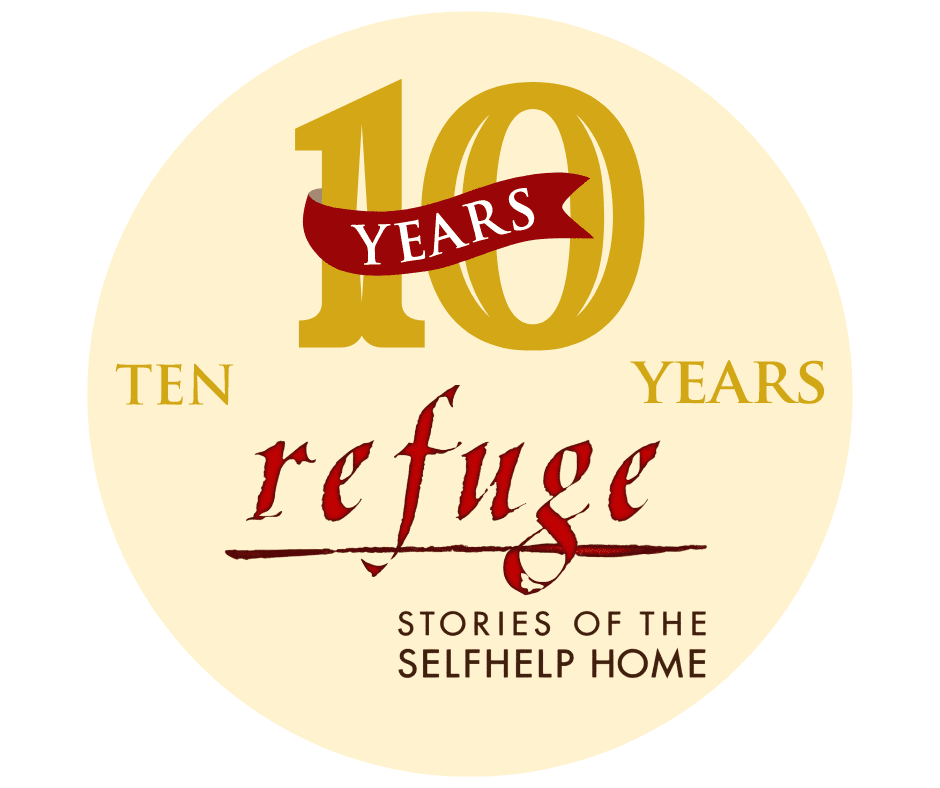A decade after it first premiered, an independent film about Holocaust survivors is continuing to resonate with audiences, spreading its message of resilience.
The film, “Refuge: Stories of the Selfhelp Home,” stands apart from many documentaries about the Holocaust as it focuses on survivors from central Europe. While the hour-long film discusses the horrors of the Holocaust, it highlights the resilience of the survivors as they created new lives for themselves.
Over the years, Chicago’s Selfhelp Home, which was founded in 1938 as a volunteer mutual aid society for refugees from Nazi persecution, has provided welcoming refuge for more than 1,000 Holocaust survivors. Currently, 15 survivors live at The Selfhelp Home.
While almost all the survivors shown in the film have died in the past 10 years, their stories continue to educate others, says Deerfield-based filmmaker Ethan Bensinger.
“The film’s message resonates today whenever I screen it, be it here in the United States or in Europe,” says Bensinger, who directed the film. “That message is the courage, the resiliency, the productivity, the creativity of the survivors. These are people who came to America as refugees but soon recognized they could make something with their lives. It took something very special in these people to survive the way they did.”
In the past decade, the poignant documentary, which premiered in 2012, has won five international awards. Plus, American Public Television picked up the film and syndicated it nationally for five years, airing it twice a year for Yom HaShoah and Holocaust Remembrance Day, reaching over 100,000 viewers nationwide.
Now, Bensinger routinely travels to Germany to show the film to school groups, who connect with the stirring emotions and personal stories of The Selfhelp Home’s residents and founders.
“Refuge” is a unique combination — of experiencing the worst but trying to make the best of it, of refugees and those who volunteered to help them, of central Europe and Chicago, of the history of the Holocaust and the history of The Selfhelp Home.
“I couldn’t tell the story of the residents without showing that they live in a very special place that can be found nowhere else in the United States — a place that they can call home, a place where for the first 25 years they could continue to speak German, a place where they enjoyed German cuisine, where they can enjoy going to concerts and hearing lectures like they did in their home countries, creating a sense of Gemütlichkeit, a feeling of comfort,” Bensinger says.
Image: Ethan showing the Refuge film to students in Germany.
Bensinger typically travels to Germany in November around Kristallnacht, when German schools concentrate their Holocaust studies. He reaches over 1,000 young people each time he visits.
The message of the film strikes home for German students, Bensinger says, as they see remnants from World War II around them, a movement toward right-wing authoritarianism in Poland, Hungary, and also in Germany with the growth of the Alternative for Deutschland party, as well as the plight of Ukrainians targeted by Russian troops. “They recognize the dangers that they, as young people, can face in the future, and so revisiting their history is something they take very seriously,” Bensinger says.
The German students tell him that they learn statistics about World War II and the Holocaust in school, “but when they see the film with the emotion on people’s faces, the tears, the cracking of the voice — for example, when Edith talks about her sister, Marietta, being placed on the Kindertransport train by their father, and Edith says, ‘It’s so heartbreaking,’ and hearing her voice crack when she does, or Hannah talking about throwing a piece of bread to a prisoner who is then shot — you can’t well understand that by reading a textbook.”
Bensinger also delivers a message to the German schoolchildren. “One of the messages I have for them — because it’s a message that Hannah and Edith wanted to make sure that I passed along — is that young people today should not feel guilty about the crimes of their grandparents or great-grandparents, but rather they need to have a sense of responsibility. They need to take it upon themselves to learn their history, learn from the past, and to make sure that it doesn’t happen again.”
When Bensinger made “Refuge,” he was a retired immigration lawyer, not a filmmaker. But he was inspired by the stories of residents of The Selfhelp Home.
“I’ve always been attuned to the Holocaust,” Bensinger says. “I was born in Israel, came to the United States as an immigrant, and grew up in a family that lost 40 members during the Holocaust. I thought I knew everything there was to know about the Holocaust until I started to hear their firsthand stories.” His family has a long history at The Selfhelp Home. His mother was an occupational therapist at The Selfhelp Home for 25 years, his grandmother became a resident, and later his mother became a resident. “I got to know the people who I interviewed by visiting my mother and going to Sunday concerts,” he says. “After the concerts, there was always coffee and cake — in German that’s known as Kaffeeklatsch.”
His family has a long history at The Selfhelp Home. His mother was an occupational therapist at The Selfhelp Home for 25 years, his grandmother became a resident, and later his mother became a resident. “I got to know the people who I interviewed by visiting my mother and going to Sunday concerts,” he says. “After the concerts, there was always coffee and cake — in German that’s known as Kaffeeklatsch.
Bensinger realized the need to document these stories before they were lost. So he bought a movie camera, lighting equipment, and a microphone and spent a year interviewing 30 survivors who were living at Selfhelp at the time, producing a DVD collection of the interviews, which are now archived online at the Leo Baeck Institute.
He then realized he needed to go beyond individual stories to tell the broader story of resilience and how the survivors found a refuge at Selfhelp. So he assembled a professional team who, over several years, interviewed six survivors at Selfhelp as well as some of the founders.
It’s a story that makes a lasting impact. “These survivors recognized that they were in their 90s, and if they didn’t share these stories then, they were never going to share them. They felt they had an obligation to the rest of the world to tell their stories,” Bensinger says. “That’s another reason the film resonates so well with young people here in the United States and abroad. They recognize that these are older people, like their grandparents, and they’re finally opening up.”




